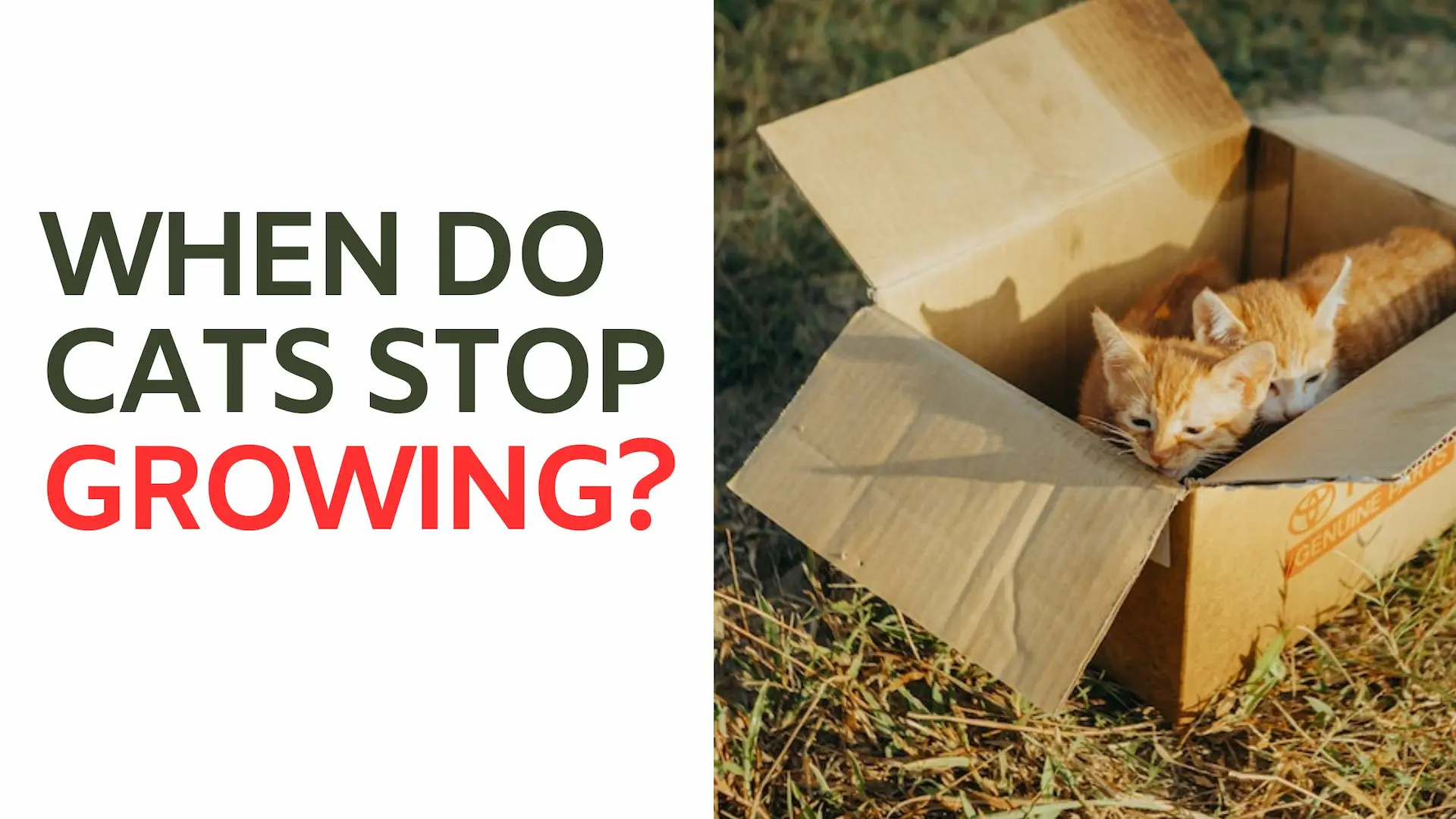Kittens are adorable, fluffy, and fun to play with. However, as a cat owner, you may be curious about when your kitten will stop growing. When do cats stop growing? This is a common question among cat owners, and it’s important to know the answer to ensure that your feline friend is growing up healthy and happy.
In this article, we’ll cover everything you need to know about when do cats stop growing. From the growth stages of kittens to the factors that affect their growth, we’ve got you covered. We’ll also provide tips on how to ensure your cat grows up to be a healthy and happy adult. So, without further ado, let’s dive in.
Growth Stages of Kittens
Kittens go through several growth stages before they reach adulthood. Knowing these stages can help you understand when your kitten will stop growing and what to expect during each phase. Here are the four growth stages of kittens:
- Neonatal Stage: This stage occurs from birth to around two weeks old. During this stage, kittens are completely dependent on their mother and cannot regulate their body temperature. They also cannot see or hear.
- Transitional Stage: This stage occurs from two to four weeks old. During this stage, kittens start to open their eyes and ears, and they start to develop their sense of smell. They also begin to explore their surroundings and learn how to use the litter box.
- Socialization Stage: This stage occurs from four to twelve weeks old. During this stage, kittens start to become more social and playful. They also start to learn social skills and how to interact with other cats and humans.
- Juvenile Stage: This stage occurs from three months to one year old. During this stage, kittens start to develop adult behaviors and characteristics. They also start to lose their baby teeth and grow their adult teeth.
Factors That Affect Growth
Several factors can affect a cat’s growth rate. Some of these factors are genetic, while others are environmental. Here are some of the factors that can affect a cat’s growth:
- Breed: Different cat breeds have different growth rates. For example, the Maine Coon breed is known for being one of the largest cat breeds and can take up to five years to reach full size.
- Diet: A cat’s diet can affect its growth rate. Cats that are fed a high-quality, nutritious diet tend to grow at a steady rate and reach their full size quicker than cats that are fed a poor diet.
- Exercise: Exercise is important for a cat’s overall health and can also affect its growth rate. Cats that get plenty of exercise tend to be more muscular and lean, while cats that are sedentary may be more prone to obesity.
- Health: A cat’s overall health can also affect its growth rate. Cats that are sick or have health problems may not grow at a normal rate.
When Do Cats Stop Growing?
So, when do cats stop growing? The answer to this question depends on several factors, including breed, diet, and exercise. However, in general, cats stop growing between one and two years old. Some larger breeds may take longer to reach full size and may not reach their full size until they are three to five years old.
It’s important to note that while cats may stop growing in size, they may continue to gain weight as they get older. This is
because cats tend to become less active as they age, and their metabolism slows down. It’s important to monitor your cat’s weight and make sure they are not becoming overweight or obese.
Tips for Ensuring Healthy Growth
As a cat owner, it’s important to ensure that your cat grows up healthy and happy. Here are some tips for ensuring healthy growth:
- Provide a Nutritious Diet: Make sure your cat is eating a high-quality, nutritious diet that is appropriate for their age and breed. Consult with your veterinarian to determine the best diet for your cat.
- Encourage Exercise: Provide plenty of opportunities for your cat to exercise and play. This can include playing with toys, providing scratching posts, and allowing your cat to explore and climb.
- Schedule Regular Vet Visits: Regular vet visits are important for monitoring your cat’s growth and overall health. Your veterinarian can also provide advice on how to ensure your cat is growing up healthy.
- Practice Good Hygiene: Make sure your cat’s living space is clean and free from bacteria and parasites. Regularly clean your cat’s litter box and provide fresh water and food.
FAQs
Do male cats grow bigger than female cats?
In general, male cats tend to be larger than female cats. However, this can vary depending on breed and individual cat genetics.
Can I stunt my cat’s growth by not feeding them enough?
Yes, if your cat is not getting enough nutrition, it can stunt their growth and development. It’s important to make sure your cat is eating a balanced and nutritious diet.
Can my cat keep growing after one year old?
While most cats stop growing between one and two years old, some larger breeds may continue to grow until they are three to five years old.
Conclusion
In conclusion, understanding when do cats stop growing is important for cat owners. Cats go through several growth stages before reaching adulthood, and several factors can affect their growth rate, including breed, diet, and exercise.
While cats may stop growing in size between one and two years old, it’s important to ensure they continue to grow and develop in a healthy and happy way. By providing a nutritious diet, encouraging exercise, scheduling regular vet visits, and practicing good hygiene, you can help ensure that your cat grows up to be a healthy and happy adult.
Read More: The Many Marvels of the Cat Paw: Everything You Need to Know

